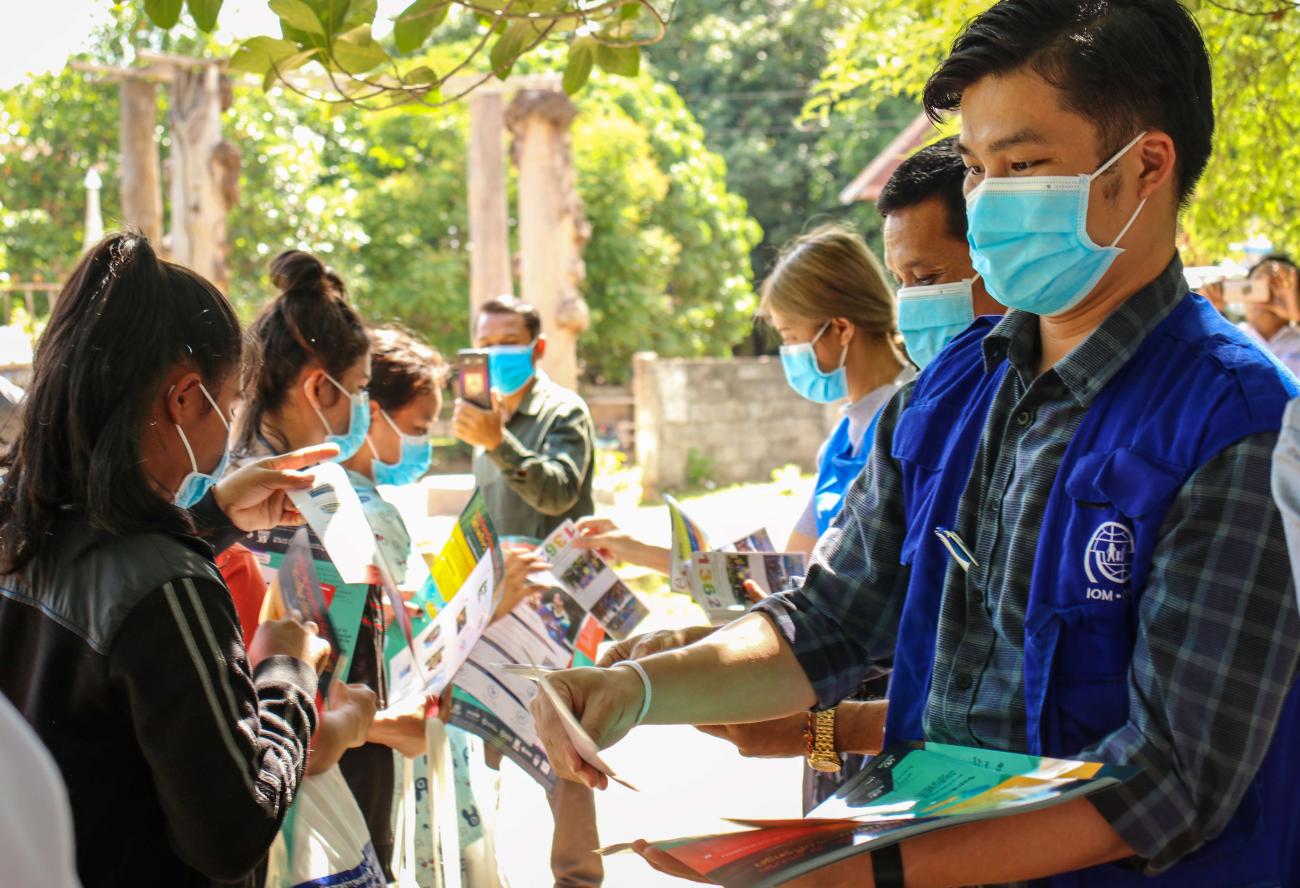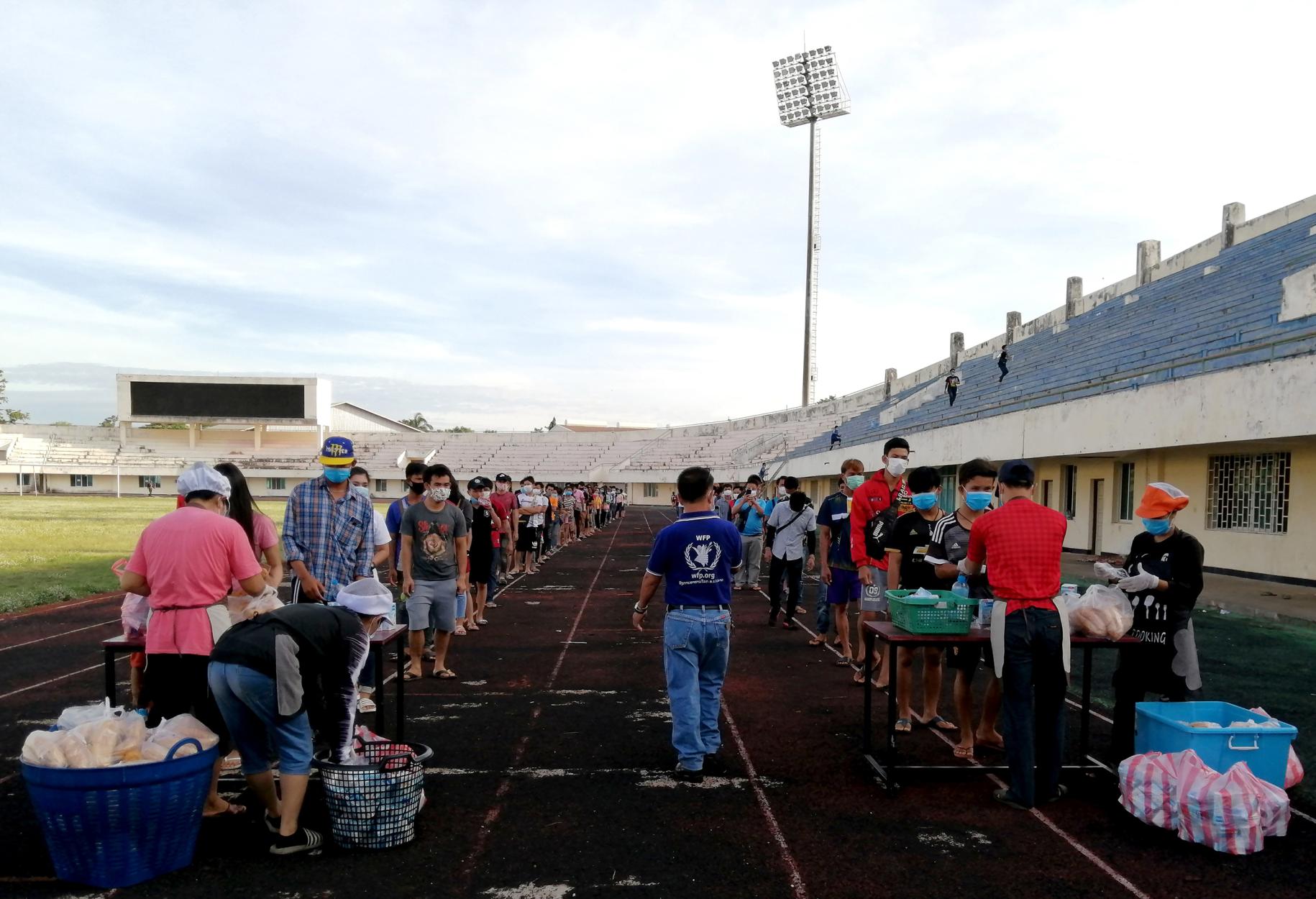Coming Home During COVID-19: The Story of Noi, a Returning Migrant

Note: This story is inspired by the real-life experiences of several migrants. Names and geographical details have been changed to protect their privacy.
It is a sunny day on the Nakai Plateau in central Lao People’s Democratic Republic, or Lao PDR. Noi has just returned from the market, where she bought a new shirt for her 3-year-old son, Seng. Seng has grown much taller in the two years since Noi left for Thailand in search of better wages.
When Seng was just 7 months old, 22-year-old Noi had the paperwork done to start working at a banana plantation in Buri Ram province across the border. Helping her parents on the rice field provided just enough food for the family of eight, but not the money to pay for electricity, education and, every now and then, some meat or fish from the market.
Reluctantly, she left her family to pick bananas all day in a foreign country where she knew no one. Migrating took time and money, but it enabled Noi to work safely, earning a much higher income in Thailand. The physical labour in the heat all day wore Noi out. So, when she heard about a cleaning job in a hotel in another city in Thailand, she decided to travel further south. The new job was more comfortable, but Noi still missed her son and husband every day. Every time her mother sent a photo of Seng, she felt a sting in her heart.
In March 2020, travel restrictions were imposed due to COVID-19. The hotel Noi worked in, like other businesses in Thailand, shut down. Noi figured that she had no choice but to return home. She felt torn inside, wanting to return to Seng, but knowing that this would mean the good income to her family would stop for good. However, the fear of not knowing when she would see her family again fuelled Noi’s determination.
It soon became clear that leaving Thailand was not going to be easy. “I was not paid my last salary before I returned home,” Noi says. “My employer also refused to give me my Thai social security membership card. I didn’t want to report them because I was afraid of trouble.” Noi was not aware of her rights, and at that moment, her biggest wish was to return home safely, even if that meant losing some money. Together with her friends, she put together some cash to book a private van to the border, because public transportation had stopped. The van trip cost more than half of her savings.

At a checkpoint upon re-entry into Lao PDR, Noi and her eight friends were taken to a quarantine center by military trucks. During the hot afternoons, Noi and her friends would rest in the shade. Three times a day, Noi and other returnees would queue up for meals. They also received basic hygiene products such as soap, toilet paper, and toothpaste. The food and hygiene supplies were provided by the United Nations, World Vision, and the Swiss Red Cross.
After two weeks of quarantine, Noi finally arrived home. While she was overjoyed to be back with her son, she still worries. “The financial situation of our family is not good. Although my husband still sends back money from the South, his income as a daily laborer is not enough to support the whole family.”
“I don’t want to leave Laos again,” Noi says as she looks at Seng as she ponders her future. Although the wages may be lower, Noi wants to stay near home and close to her son. Life won’t get easier any time soon, but, with family by her side, Noi has the motivation to overcome the challenges on the way.
This is not just Noi’s story. It is the reality of approximately 280,000 Laotian migrant workers in Thailand. According to the COVID-19 Socio-Economic Impact Assessment conducted by the United Nations in Lao PDR, there are more than 320,000 Lao citizens who became unemployed during the pandemic, with around USD 125 million remittances lost. It is estimated that about 50 per cent of the population have had to reduce their consumption, with 15 per cent unable to pay for basic food.
The United Nations continues to work with the government and people of Lao PDR to leave no one behind. The World Food Programme supports returning migrant workers in quarantine centres across the country with the distribution of food and hygiene items and works to help villagers bridge food gaps and become self-sufficient in times of income loss. The International Organization for Migration supports the Lao Government in enhancing border management, advocating for safe migration, and supporting returned migrants with direct assistance.
Even in the most difficult times, everyone should be treated with dignity and respect. Noi, like every migrant, should be able to live a life in safety, enjoying equal rights.
Story by Ms. Karen Ho, Junior Communication Officer, IOM Lao PDR, and Ms. Ildiko Hamos, Partnerships and Communications Coordinator, WFP Lao PDR. Editorial support by Paul VanDeCarr, Development Coordination Office. To learn more about the work of the United Nations Country Team in Lao PDR visit: Laopdr.un.org.













